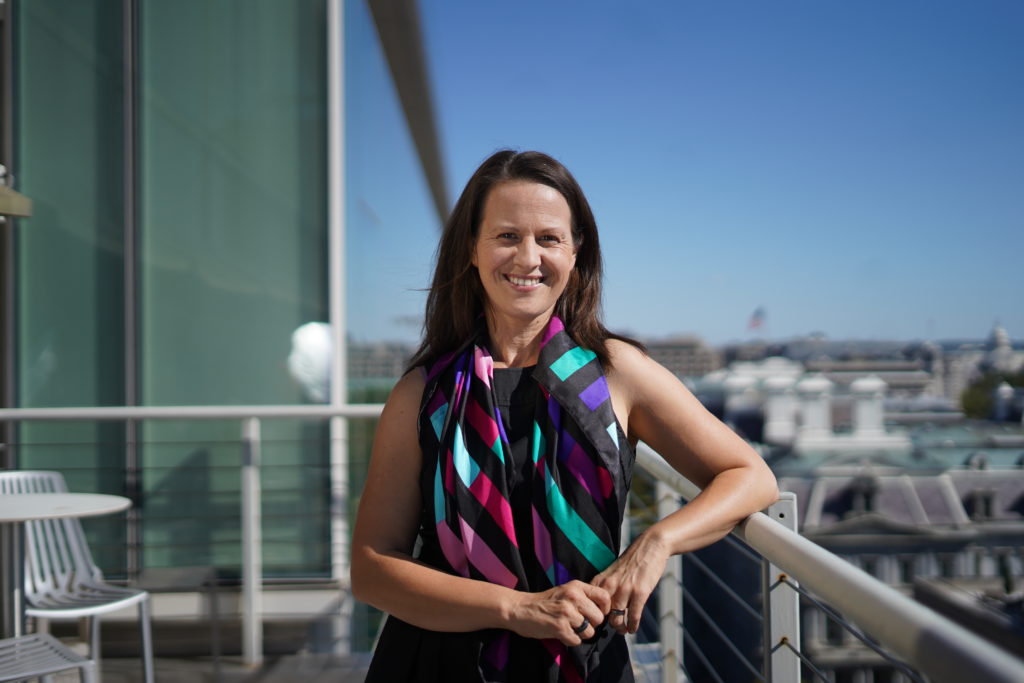Meet Data2X’s Director of Global Advocacy, Sarah Boyd.
To give Data2X partners and friends an opportunity to get to know our team, we’re conducting short Q&A’s with each of the Data2X staff members.

What is your role on the team?
I am thrilled to be the new Director of Global Advocacy at Data2X. I lead our work to influence policies, priorities and financing flows to close gender data gaps to help achieve gender equality and reach the Sustainable Development Goals(SDGs), working with our many partners across the fields of gender equality, data and global development. 2020 presents a truly exciting year to make breakthrough progress to advance gender equality, with the international community reflecting on a number of anniversaries and deciding what more needs to be done, including the 25th anniversary of the Fourth World Conference on Women and adoption of the Beijing Platform for Action, the 20th anniversary of UN Security Council Resolution 1325 on women, peace and security, the 40th anniversary of the Convention on the Elimination of All Forms Discrimination against Women (CEDAW), and the 5 year review of the SDGs.
What were you doing professionally before you came to Data2X?
Prior to joining Data2X, I was studying in the mid-career MPA program at the Harvard Kennedy School directly after parental leave. While studying, I was on a Fulbright scholarship exploring the potential of feminist foreign policies to increase women’s representation in politics and decision making in the Asia Pacific region.
Why do you care about gender data and what is one thing you want people to know?
Data2X was named for the power women possess to multiply progress in their societies. We simply can’t support that power and potential if we don’t enough good quality data about women’s lives – from whether they can exercise their rights, to whether they have a legal identity, whether they feel safe, to how they spend their time.
One thing I want people to know is that data is not objective.
I first trained in economics and development economics, before studying and working in international development and human rights. Early on, I was trained to see data as objective, as neutral, as accepted truth. Now I understand that data is biased, and is a form of power in the age of ‘big data’.
What gender or data-related book should people have on their reading lists?
Data Feminism by Catherine D’Ignazio and Lauren Klein. The authors released their draft publication for open comment in 2018 (available in March 2020). I can remember the moment I heard the words ‘data feminism’ for the first time, in a Data & Donuts meeting. Catherine and Lauren’s ideas and work have completely changed the way I think about and my relationship with data, technology and power. Their work led me down new paths of inquiry studying data justice and algorithmic bias, and has led me to Data2X to dive deep into gender data.
What do you enjoy doing when you’re not working?
When I’m not working, I am usually found on imaginative adventures led by my two-year old son, Aidan, and husband, Chris; exploring nature with our family in New Hampshire; or searching high and low for coffee as good as in my hometown, Melbourne (I’m still searching)!
